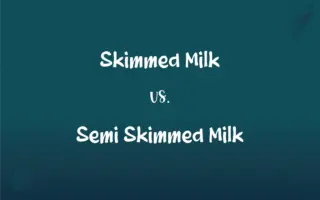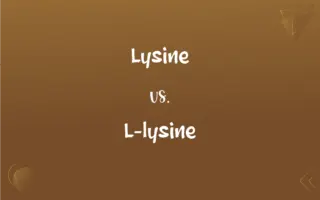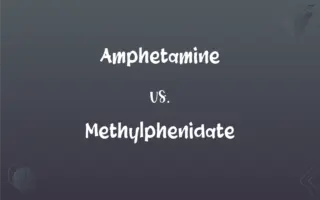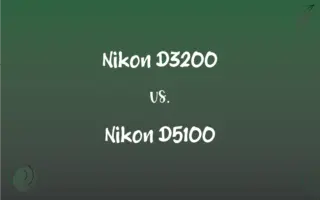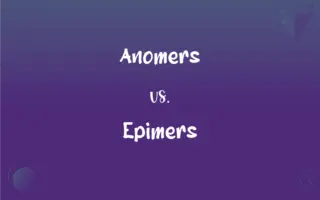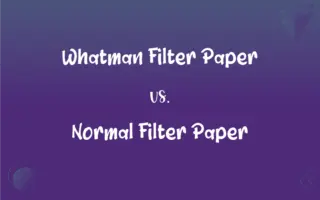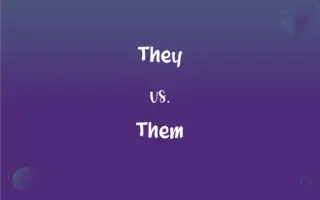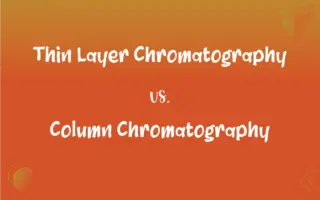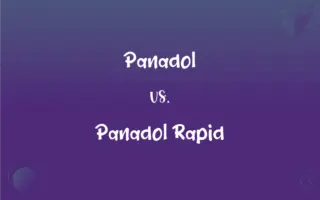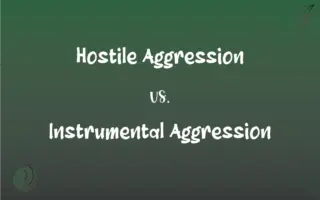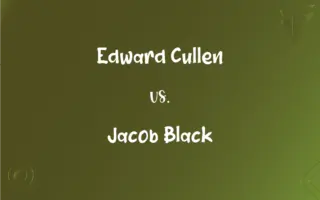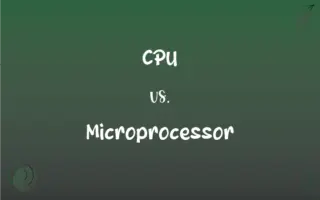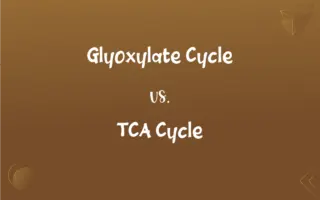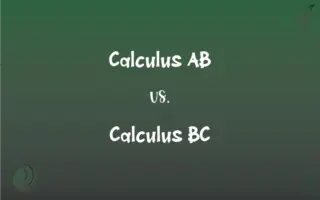Period vs. Cycle: What's the Difference?
Edited by Aimie Carlson || By Harlon Moss || Updated on November 18, 2023
"Period" refers to a length of time or a specific stage, while "cycle" denotes a series of events that recur in a regular sequence.

Key Differences
Period often signifies a distinct duration of time, which can be short or long, but is generally defined and measurable. Cycle implies a recurring process, like the life cycle, where events repeat in a predictable pattern.
In historical or academic contexts, a period refers to a specific era with distinct characteristics, such as the Victorian period. A cycle, however, might refer to repeated sequences in nature or processes, such as the water cycle or economic cycles.
Period is also used grammatically to denote the punctuation mark "." at the end of a sentence. Cycle has no grammatical context but is used in various fields, from biology to economics, to describe repetitive processes or sequences.
Period can also mean a point or stage in a process, like a period of growth in a company. Cycle suggests a more holistic view, encompassing the beginning, end, and renewal of a process, such as a business cycle.
Comparison Chart
Definition
A length of time or specific stage
Series of events in a regular sequence
ADVERTISEMENT
Context
Defined duration, historical eras
Repetitive processes in nature, economics
Usage
Time durations, punctuation mark
Biological, natural, and economic sequences
Connotation
Stage or point in a process
Holistic, encompassing beginning to end
Period and Cycle Definitions
Period
A duration of time.
The project took a six-month period to complete.
Cycle
A complete round or series of occurrences.
The economic cycle includes booms and busts.
ADVERTISEMENT
Period
Stage in a process.
The startup is in its initial growth period.
Cycle
A series of events that repeat.
The water cycle is essential for life.
Period
Punctuation mark.
End the sentence with a period.
Cycle
A habitual series of actions.
He has a daily cycle of activities.
Period
A historical era.
The Renaissance period was a time of great cultural growth.
Cycle
A recurring process in nature.
The moon cycle affects the tides.
Period
An interval of time characterized by the occurrence of a certain condition, event, or phenomenon
A period of economic prosperity.
Cycle
A sequence in biological processes.
The cell cycle is crucial for growth and repair.
Period
An interval of time characterized by the prevalence of a specified culture, ideology, or technology
Artifacts of the pre-Columbian period.
Cycle
An interval of time during which a characteristic, often regularly repeated event or sequence of events occurs
Sunspots increase and decrease in intensity in an 11-year cycle.
Period
An interval regarded as a distinct evolutionary or developmental phase
Picasso's early career is divided into his blue period and rose period.
Cycle
A single complete execution of a periodically repeated phenomenon
A year constitutes a cycle of the seasons.
Period
(Geology) A unit of time, longer than an epoch and shorter than an era.
Cycle
A periodically repeated sequence of events
The cycle of birth, growth, and death.
A cycle of reprisal and retaliation.
FAQs
Is "period" used in sports?
Yes, some sports have divisions of play called periods.
Does "period" have a mathematical meaning?
Yes, in decimal representation, repeating sequences are periods.
Can "cycle" mean a mode of transport?
Yes, like a bicycle or motorcycle.
Is "period" used in theater or literature?
Yes, to denote specific eras or styles.
Can "cycle" describe economic phenomena?
Yes, like business or financial cycles.
Is "cycle" used in environmental science?
Yes, like in the carbon cycle or life cycles.
Does "cycle" imply repetition?
Yes, it inherently involves recurrence.
Is "cycle" used in astronomy?
Yes, like in lunar or solar cycles.
Can "period" refer to a school class?
Yes, in education, a class session is often called a period.
Can "period" be used in music?
Yes, it can refer to a specific era or style in music.
Is "cycle" a technical term in computing?
Yes, like in processing or refresh cycles.
Can "period" denote a level of completion?
Yes, like completing a task in a set period.
Does "period" imply finality in statements?
Yes, especially as punctuation, it signifies an end.
Can "cycle" imply a life journey?
Metaphorically, yes, like life's cycles.
Does "period" have a colloquial use?
Yes, it's sometimes used to emphasize finality.
Can "period" mean a pause or break?
In some contexts, like a rest period.
Does "cycle" refer to a fitness regimen?
Yes, in terms like exercise or workout cycles.
Is "period" used in historical analysis?
Yes, to categorize and study different eras.
Is "cycle" part of ecological studies?
Yes, in studying ecosystems and their processes.
About Author
Written by
Harlon MossHarlon is a seasoned quality moderator and accomplished content writer for Difference Wiki. An alumnus of the prestigious University of California, he earned his degree in Computer Science. Leveraging his academic background, Harlon brings a meticulous and informed perspective to his work, ensuring content accuracy and excellence.
Edited by
Aimie CarlsonAimie Carlson, holding a master's degree in English literature, is a fervent English language enthusiast. She lends her writing talents to Difference Wiki, a prominent website that specializes in comparisons, offering readers insightful analyses that both captivate and inform.
















